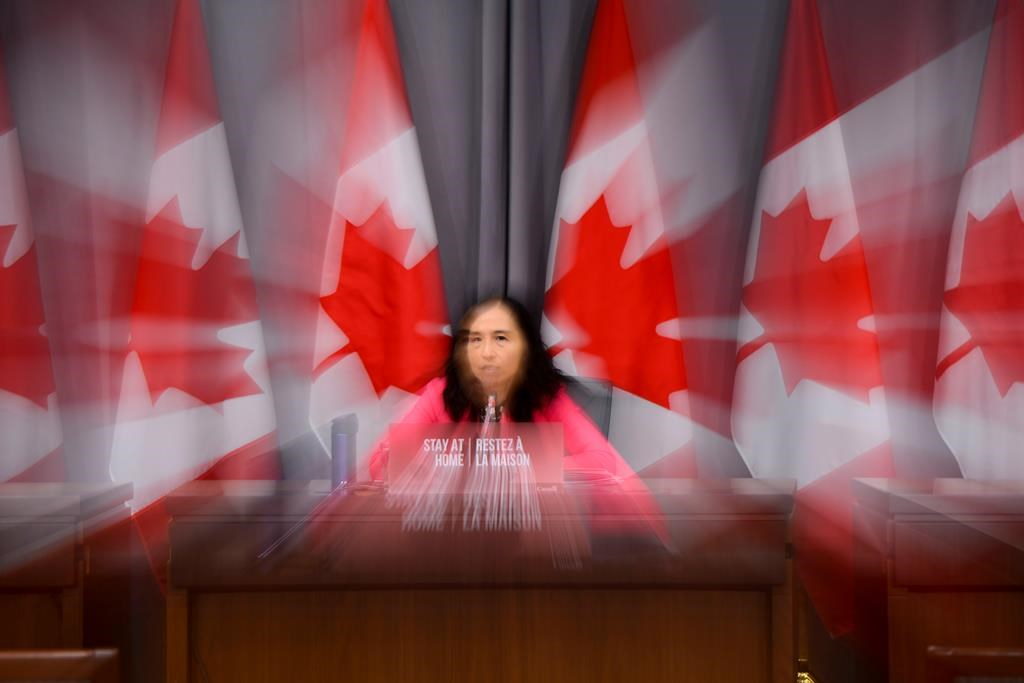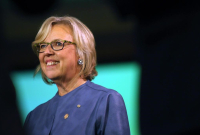Support strong Canadian climate journalism for 2025
Canada's death toll from COVID-19 passed the 5,000-mark on Tuesday as Prime Minister Justin Trudeau said the pandemic had exposed serious cracks in Canada's hard hit long-term care that governments will have to fix.
As he pledged new financial help for seniors, Trudeau noted nursing homes fall under provincial jurisdiction but said Ottawa will help provinces improve the system once the pandemic emergency is over. He gave no details.
The help for seniors will see the federal government send $300 cheques to millions of people who qualify for old age security, plus $200 for those receiving the guaranteed income supplement.
"They are facing additional costs," Trudeau said. "We need to support people right now."
Canada's caseload of COVID-19 climbed above 71,000 on Tuesday, with at least 5,167 of those fatal. Most deaths have been in long-term care facilities
Quebec accounted for 118 new deaths, for a total of 3,131. Ontario, which extended its state of emergency to June 2, reported a modest 1.8 per cent increase of 361 new cases along with 56 more deaths, meaning 1,725 people in the province have died from the virus. New Brunswick and Newfoundland and Labrador reported no new cases.
The impact of the pandemic will likely be felt well into the future, Canada's chief public health officer Dr. Theresa Tam said. The country won't see mass gatherings, non-essential travel, or everyone leaving home for work any time soon, she said.
"A lot of what fundamentally characterizes Canadian daily life will not look the same," Tam said. "The new normal means that Canadians — each and every one of us — continue to observe some very core public health practices. One of the most difficult is staying home when you're sick."
One longer-term effect is being felt at universities whose campuses have been shut down. Several schools have said classes will be primarily online when the new academic year begins in September. One student, Griffin Schwartz, expressed disappointment at having to take classes remotely for the start of his final year.
"This past semester we had two weeks of online classes," said Schwartz, a third-year honours physics student at McGill. "They're not the same. It's a lot harder to pay attention, focus, and just motivate myself to do the work."
Conditions in the country's prisons have become the subject of a new COVID-related lawsuit, with human rights organizations filing a constitutional challenge against the federal government over prisoner safety. In all, 333 federal inmates have been infected, two fatally, as have scores of guards.
Several groups have been calling for a controlled release of prisoners to allow for physical distancing, along with sharply higher testing for inmates and correctional staff.
Anti-pandemic measures, which have shut down a wide range of sports and entertainment, prompted the Canadian National Exhibition in Toronto to cancel this year's 18-day event due to start Aug. 21. The popular fair has only cancelled once before in its 142-year history, during the Second World War.
With large-scale events cancelled around the globe, an ill-considered social media post that sparked cries of racism prompted an apology from Canadian rocker Bryan Adams, whose gig in England was scrapped because of coronavirus fears. Adams had blamed the pandemic on "bat eating, wet market animal selling, virus making greedy bastards."
The singer apologized on Tuesday to "any and all that took offence," saying he was promoting veganism and ranting about "animal cruelty in the wet markets."
Globally, more than 4.3 million cases of COVID-19 have been reported, with deaths approaching 300,000.
Back in Ottawa, Trudeau was non-committal on reopening the border with the United States even though the two countries have discussed plans to deal with higher cross-border traffic as states and provinces begin reopening. Only essential travel has been allowed since March, but the partial closure was set to expire next week.
Trudeau did say Ottawa was looking at beefing up protocols around a requirement that any newcomers to the country self-quarantine for two weeks.
"We're going to be very careful about vectors of infection into Canada," he said.
—With files from Canadian Press reporters across the country
This report by The Canadian Press was first published on May 12, 2020





Comments